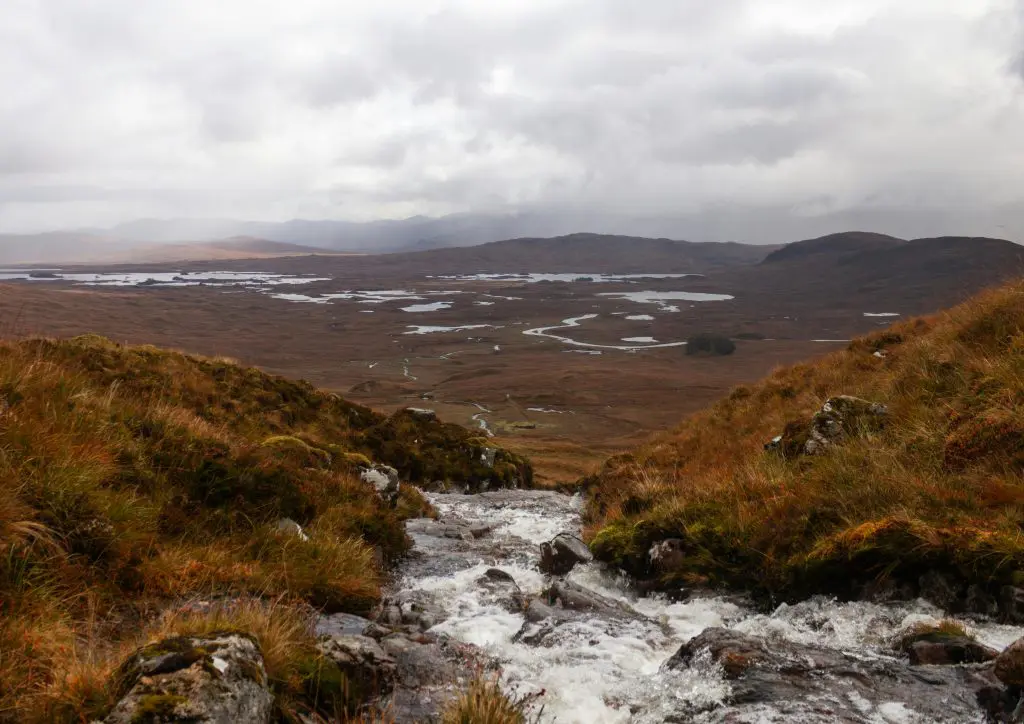
Honouring International Cooperation in Conservation A special event held this week in Lullymore, Co. Kildare, honoured the long-standing contribution of Dutch researchers and conservationists to the protection of Irish peatlands. Hosted jointly by the Dutch Embassy and the Irish Peatland Conservation Council, the gathering brought together a wide range of stakeholders committed to peatland restoration […]
A special event held this week in Lullymore, Co. Kildare, honoured the long-standing contribution of Dutch researchers and conservationists to the protection of Irish peatlands. Hosted jointly by the Dutch Embassy and the Irish Peatland Conservation Council, the gathering brought together a wide range of stakeholders committed to peatland restoration and sustainable land use.
Held at the Bog of Allen Nature Centre, the event drew participants from environmental organisations, academic institutions, farming communities, and both Irish and Dutch civil services. With peatland restoration increasingly tied to broader climate and biodiversity goals, the meeting served as a platform for exchanging ideas and experiences.
Discussions highlighted the ongoing challenges and opportunities in protecting peatlands, ecologically rich landscapes that store carbon and support unique biodiversity.
While the focus of the Kildare event was on Irish and Dutch cooperation, peatlands are a global resource with international implications. Covering just 3% of the Earth’s land surface, peatlands store twice as much carbon as all the world’s forests combined. Yet they are among the most threatened ecosystems on the planet, frequently drained for agriculture, forestry, and fuel.
International initiatives, such as the Global Peatlands Initiative led by the United Nations Environment Programme (UNEP), aim to promote conservation strategies globally. Ireland’s peatland policies and partnerships could serve as valuable case studies for countries with similar landscapes, such as Indonesia, Canada, and Finland, seeking to reduce emissions while supporting rural communities.
A key figure honoured at the event was Professor Matthijs Schouten, an ecologist and philosopher affiliated with both Wageningen University in the Netherlands and University College Cork. Schouten has been involved with Irish peatlands for over 50 years.
He first came to Ireland in the 1970s to study bogs, having witnessed the extensive loss of such habitats in the Netherlands. Alongside a group of Dutch colleagues, he helped establish the Dutch Foundation for the Conservation of Irish Bogs.
Between 1983 and 1987, the foundation raised funds in the Netherlands to purchase and protect three Irish peatland sites:
Scragh Bog in Co. Westmeath
Cummeragh River Bog in Co. Kerry
Cloghar na gCon in Co. Galway
These lands were later donated to the Irish people, a gesture that has had lasting ecological and symbolic importance.
Speaking at the event, Schouten praised Ireland’s progress, noting that it holds 60% of Europe’s remaining raised bogs. He described Irish bogs as “truly extraordinary” and called for continued collaboration between Irish and Dutch researchers.
Dutch Ambassador to Ireland, Maaike van Koldam, also spoke at the event. She emphasised the importance of local and international cooperation, particularly in balancing environmental goals with community needs.
She remarked on the value of ongoing engagement between stakeholders, including farmers, landowners, and environmental groups, and acknowledged that such dialogue is helping restoration efforts gain traction across the country.
While the event celebrated progress, it also acknowledged ongoing concerns, particularly from the farming community.
Irish Farmers’ Association (IFA) President Francie Gorman highlighted widespread scepticism among farmers regarding the potential impacts of rewetting peatlands on agricultural land.
“The fear is: how is it going to affect their farms? There is a lot more communication needed with farmers and probably a lot more research to be done on the issue before farmers would be fully convinced of the advantages of it over the disadvantages,” said Gorman.
Gorman also spoke about the pressing issue of Ireland’s nitrates derogation, which allows farmers to apply livestock manure nitrogen above the EU limit. Ireland is the only EU country currently seeking to retain this derogation beyond 2025, and the European Commission has stated that future approvals will require compliance with the Habitats Directive.
Gorman warned of the “catastrophic” impact on dairy farm viability if the derogation is lost.
The event in Kildare demonstrated how decades of international collaboration, such as the efforts by Dutch conservationists in the 1980s, continue to shape Ireland’s peatland policy today. It also made clear that meaningful progress requires inclusive dialogue that incorporates scientific knowledge, policy frameworks, and local concerns.
As climate pressures intensify, peatlands remain central to Ireland’s ecological strategy, not only as carbon sinks, but as living landscapes with deep cultural and environmental significance.
As Ireland progresses from protecting what remains to actively regenerating degraded bogs, the focus must shift toward long-term resilience. Regeneration involves re-establishing native plant communities, restoring natural water flows, and creating conditions where ecosystems can sustain themselves without intensive human intervention.
This requires:
Long-term funding commitments.
Clear legal frameworks for land use.
Community-driven governance models.
Peatland restoration is not just an environmental project, it’s a generational endeavour that demands patience, vision, and inclusivity.
At All-Ireland Sustainability, we’re committed to building a greener, fairer island, together. Stay informed on the latest environmental initiatives, community action, and policy developments shaping sustainability across Ireland, North and South.
👉 Sign up for our newsletter today and be the first to hear about upcoming events, expert insights, and ways to get involved.
Whether you’re a seasoned advocate or just starting your journey, new members are always welcome.
Subscribe now and be part of the All-Ireland Sustainability Membership.